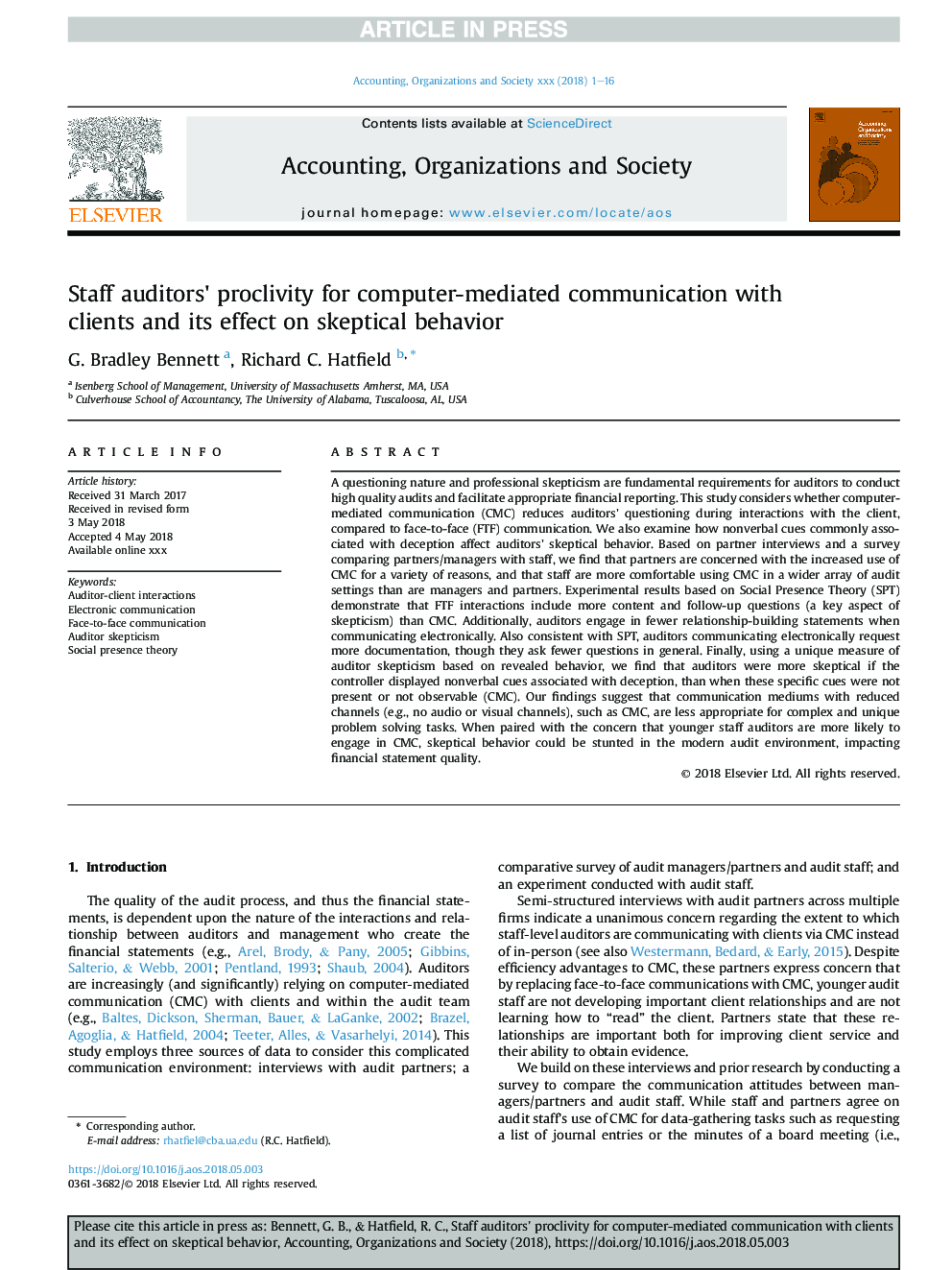| کد مقاله | کد نشریه | سال انتشار | مقاله انگلیسی | نسخه تمام متن |
|---|---|---|---|---|
| 7239445 | 1471230 | 2018 | 16 صفحه PDF | دانلود رایگان |
عنوان انگلیسی مقاله ISI
Staff auditors' proclivity for computer-mediated communication with clients and its effect on skeptical behavior
ترجمه فارسی عنوان
تعهد حسابرسان برای ارتباط با رایانه با مشتریان و تاثیر آن بر رفتارهای شکاکانه
دانلود مقاله + سفارش ترجمه
دانلود مقاله ISI انگلیسی
رایگان برای ایرانیان
کلمات کلیدی
تعاملات حسابرس و مشتری، ارتباطات الکترونیکی، ارتباط چهره به چهره، شک و تردید حسابرس تئوری حضور اجتماعی
موضوعات مرتبط
علوم انسانی و اجتماعی
مدیریت، کسب و کار و حسابداری
حسابداری
چکیده انگلیسی
A questioning nature and professional skepticism are fundamental requirements for auditors to conduct high quality audits and facilitate appropriate financial reporting. This study considers whether computer-mediated communication (CMC) reduces auditors' questioning during interactions with the client, compared to face-to-face (FTF) communication. We also examine how nonverbal cues commonly associated with deception affect auditors' skeptical behavior. Based on partner interviews and a survey comparing partners/managers with staff, we find that partners are concerned with the increased use of CMC for a variety of reasons, and that staff are more comfortable using CMC in a wider array of audit settings than are managers and partners. Experimental results based on Social Presence Theory (SPT) demonstrate that FTF interactions include more content and follow-up questions (a key aspect of skepticism) than CMC. Additionally, auditors engage in fewer relationship-building statements when communicating electronically. Also consistent with SPT, auditors communicating electronically request more documentation, though they ask fewer questions in general. Finally, using a unique measure of auditor skepticism based on revealed behavior, we find that auditors were more skeptical if the controller displayed nonverbal cues associated with deception, than when these specific cues were not present or not observable (CMC). Our findings suggest that communication mediums with reduced channels (e.g., no audio or visual channels), such as CMC, are less appropriate for complex and unique problem solving tasks. When paired with the concern that younger staff auditors are more likely to engage in CMC, skeptical behavior could be stunted in the modern audit environment, impacting financial statement quality.
ناشر
Database: Elsevier - ScienceDirect (ساینس دایرکت)
Journal: Accounting, Organizations and Society - Volumes 68â69, July 2018, Pages 42-57
Journal: Accounting, Organizations and Society - Volumes 68â69, July 2018, Pages 42-57
نویسندگان
G. Bradley Bennett, Richard C. Hatfield,
